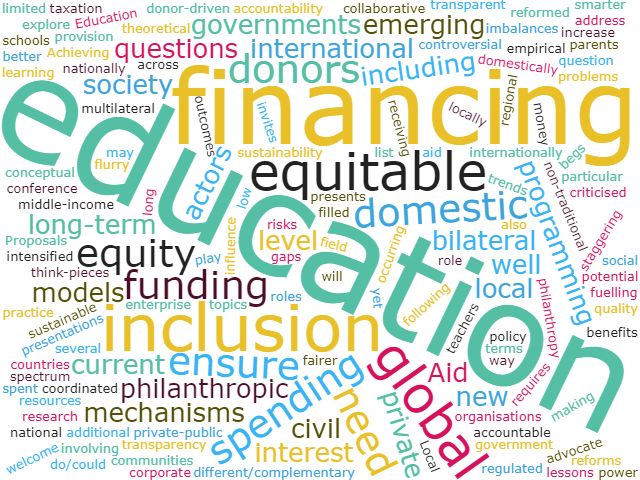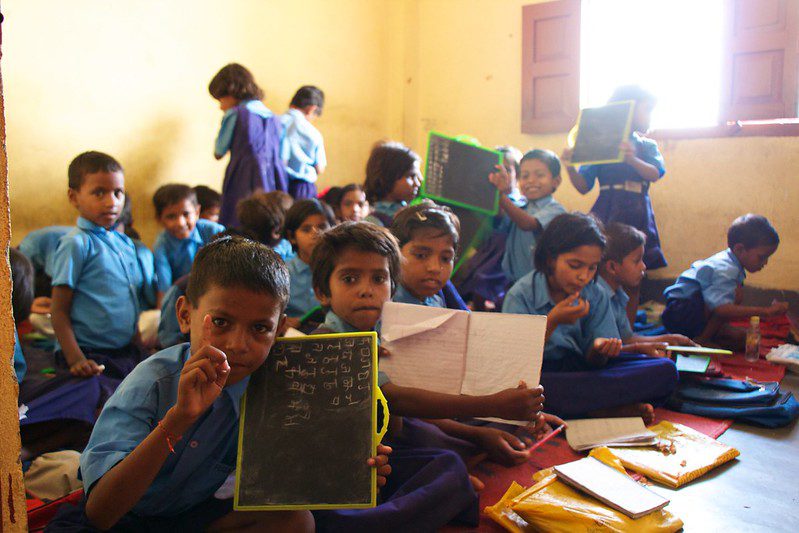The 2019 UKFIET conference, 17-19 September, will explore issues through six main parallel themes. Each of these is co-convened by two experts from the Conference Committee. Here they provide a short teaser of what you can expect from their theme.
By Bronwen Magrath, Research Fellow at the University of Oxford’s Centre for Comparative and International Education and Programme Officer for the International Education Funders Group, and Moses Oketch, Professor of International Education Policy and Development at the University College London (UCL) Institute of Education.
We hope you’ll join us to explore this exciting – and often controversial – theme in the 2019 UKFIET conference. There are some good ‘gritty’ questions that underline this theme: whose responsibility is it to pay for education? What role do we imagine for households, for local governments, for non-state actors, for international aid and philanthropy? We do not want this to become a stale debate on private versus public provision; rather we want to think about current trends in education financing and the role of different actors in supporting equitable quality learning.
There are those who argue strongly that it is the responsibility of national governments to finance equitable quality education but the reality is also that many of the poorest countries and those affected by conflict will only be able to see educational progress with the help of external aid. With external funding comes calls for impact evaluation. Can a focus on impact and results provide a negative incentive for equity and inclusivity?
The papers under this theme present us with new ways to think about the challenge of funding equitable learning, and that highlight how different sorts of funders can work in complementary ways towards this shared goal. They include analyses of specific programmes or new funding mechanisms; or examples of collaborative funding in a particular issue-area such as education and migration, or teachers’ professional development.
This theme provides a great opportunity for us to think about funding beyond provision and programming. What can we learn from civil society organisations who advocate for more equitable and transparent financing and taxation? And how about the wider conference theme of ‘systems’ – what funding re-think may be needed if our goal is broader sector- and systems-strengthening?





